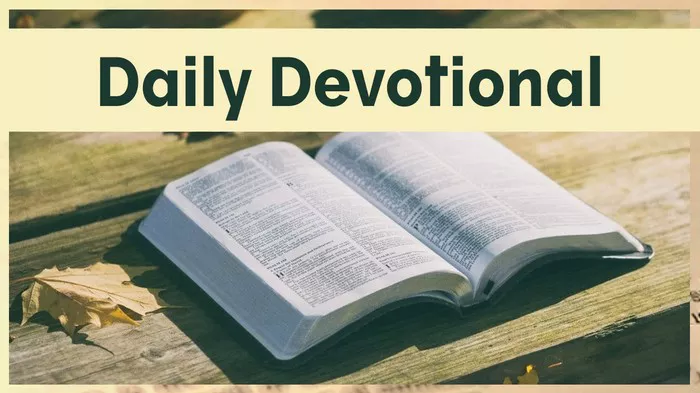In the realm of spiritual practice, leading a devotional holds significant importance. Whether in a religious setting, a community group, or even within a family, the role of a devotional leader is pivotal in guiding others through moments of reflection, prayer, and contemplation. This article aims to delve into the essentials of leading a devotional, offering insights, tips, and practical advice to enhance this sacred experience for both the leader and participants.
Understanding the Purpose of a Devotional
At its core, a devotional serves as a dedicated time for spiritual focus and connection. It provides a space where individuals or a group can come together to express faith, gratitude, seek guidance, and deepen their relationship with their spiritual beliefs. The leader of a devotional plays a crucial role in facilitating this experience, creating an atmosphere conducive to introspection and communal worship.
Preparation: Key to Effective Leadership
1. Selecting a Theme or Focus
Before leading a devotional, thoughtful consideration should be given to selecting a theme or focus. This theme will guide the content and structure of the devotional session, ensuring coherence and relevance. Themes can range from topics such as gratitude, forgiveness, strength in adversity, to exploring specific religious texts or teachings.
2. Gathering Resources
Once the theme is chosen, gathering appropriate resources becomes essential. This may include relevant scriptures, readings, hymns, or other materials that align with the chosen theme. These resources not only enrich the content but also provide varied perspectives and insights for participants.
3. Structuring the Devotional
A well-structured devotional helps maintain flow and engagement. Consider incorporating elements such as:
Opening: Setting the tone with an introductory prayer, reflection, or a moment of silence.
Main Content: Presenting readings, scriptures, or stories that resonate with the theme. Encourage discussion or personal sharing where appropriate.
Reflection and Meditation: Allowing time for silent reflection, meditation, or guided contemplation.
Closing: Concluding with a prayer, affirmation, or shared commitment to apply insights gained.
Cultivating Effective Leadership Skills
1. Authenticity and Presence
Effective devotional leadership hinges on authenticity and presence. Being genuine in expression and embodying a calm, centered presence can significantly influence the atmosphere and engagement of participants. Cultivate a demeanor that invites trust, openness, and spiritual connection.
2. Facilitation and Engagement
A skilled devotional leader acts as a facilitator rather than a lecturer. Encourage participation through open-ended questions, invitations for sharing, or group activities that foster deeper engagement with the theme. Listen actively and respectfully to contributions, creating a supportive environment for all participants.
3. Adaptability and Sensitivity
Recognize the diversity within your audience or group. Adapt your approach to accommodate different preferences, beliefs, and comfort levels. Respect cultural practices and sensitivities, ensuring inclusivity and a sense of belonging for all participants.
SEE ALSO: Finding Inspiration in Daily Devotionals: Today’s Challenges
Enhancing the Devotional Experience
1. Creating a Sacred Space
The physical environment plays a crucial role in setting the tone for a devotional. Choose a quiet, comfortable space free from distractions. Consider elements like lighting, music, or symbolic objects that enhance the sacredness of the gathering.
2. Encouraging Reflection and Application
A successful devotional extends beyond the session itself. Encourage participants to reflect on insights gained and consider practical applications in their daily lives. Provide opportunities for ongoing spiritual growth and community support beyond the devotional.
3. Evaluating and Improving
Continuous improvement is key to effective leadership. Solicit feedback from participants to understand their experience and areas for enhancement. Reflect on your own performance as a leader, seeking opportunities to refine your skills and deepen the impact of future devotionals.
Overcoming Challenges
Leading a devotional can present challenges such as maintaining focus, addressing diverse beliefs, or navigating unexpected disruptions. Prepare contingency plans, stay adaptable, and prioritize the spiritual well-being of participants throughout any challenges encountered.
Conclusion
Mastering the art of leading a devotional involves a blend of spiritual insight, interpersonal skills, and practical preparation. By understanding the purpose, preparing diligently, cultivating effective leadership skills, and enhancing the overall devotional experience, leaders can create meaningful and transformative spiritual gatherings. Whether in formal religious settings or informal group settings, the role of a devotional leader remains indispensable in fostering spiritual growth, community bonding, and deepening personal faith journeys.
Through commitment to authenticity, continuous improvement, and a heartfelt dedication to spiritual service, every devotional leader can inspire others to connect more deeply with their spirituality and experience the profound beauty of communal worship and reflection.

